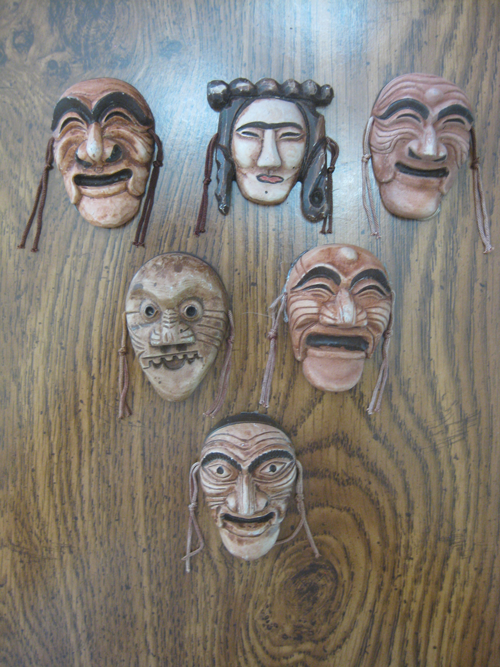Note: This site is moving to KnowledgeJump.com. Please reset your bookmark.
Authentic Leadership and Social Influence
While the idea of authentic leadership has been around since the ancient Greek aphorism “know thyself” first appeared, it was not until Bill George wrote about it in 2003 that it became a popular leadership concept.
George described authentic leadership as a style that is consistent with a leader's personality and core values, and that is honest, ethical, and practical (2003, 2007).
Unauthentic leaders hide behind masks
While the above definition is centered upon the leader or self, it is the actions of the leader that are perceived by others that determines if they believe a leader is authentic or not. And their perception is accomplished through the social influence of the leader. One recent definition of leadership is:
Leadership is a process of social influence, which maximizes the efforts of others, towards the achievement of a goal (Kruse, 2013).
Thus, a leader's authentically emphasizes building his or hers legitimacy through honest relationships and ethical actions, that in turn, maximizes the efforts of others to achieving the goal.
In addition, Bill George noted that there were five dimensions of Authentic Leaders (2003, 2007) :
- Pursuing purpose with passion: Display purpose and direction so people want to follow you (your passion will show you the true way to the purpose of leadership).
- Practice solid values: We are defined by our values and characteristics. If you do not have integrity, no one will trust you or want to follow you.
- Lead with the heart: Engage the hearts of those you serve and align their interests with the interests of those you lead. You need empathy and compassion for the people you work with and courage to make difficult decisions
- Establish enduring relationships: Enduring relationships are built on connectedness and a shared purpose of working together towards a common goal. People need personal relationships to fully commit to work.
- Demonstrate self-discipline: Converts value into consistent action so that you produce results. Always take full responsibility for outcomes and hold others for their performance.
For each of the five dimensions, a related characteristic is shown that must be developed for a leader to be effective:
- Purpose - Passion: Leaders understands their purpose, which is driven by their passion.
- Values - Behavior: Leaders live their values, which is important as others determine a leader's value through the leader's actions (behavior).
- Heart - Compassion: Leaders help others to see the value and deeper purpose of their work.
- Relationships - Connectedness: Leaders create enduring and genuine relationships through connections.
- Self-discipline - Consistency: Leaders convert their values into consistent actions that others can rely on.
To become an authentic leader you must make a deep commitment to developing yourself through rich and meaningful experiences, reflection, and informal and formal learning. The goal is to learn and develop your true self, rather than become an imitation of someone else. While you can learn from others, you cannot be them.
If you are trying to develop authentic leaders, then your organization must have an authentic company culture where:
. . . individual differences are nurtured; information is not suppressed or spun; the company adds value to employees, rather than simply extracting it from them; the work itself is intrinsically rewarding; and there are no stupid rules. - Tim Fidler, 2016
Next Steps
Authentic Leadership Self-Assessment Questionnaire
Next chapter: Servant Leadership
References
Fidler, T. (2013). Authentic Leadership. Harvard Business Publishing. Retrieved from http://www.harvardbusiness.org/blog/authentic-leadership-0
George, B. (2003). Authentic Leadership: Rediscovering the secrets to creating lasting value. San Francisco:Jossey-Bass.
George, B. (2007). True North: Discover Your Authentic Leadership. San Francisco:Jossey-Bass.
Kruse, K. (2013). What Is Leadership? Forbes Magazine. Retrieved from http://www.forbes.com/sites/kevinkruse/2013/04/09/what-is-leadership/

